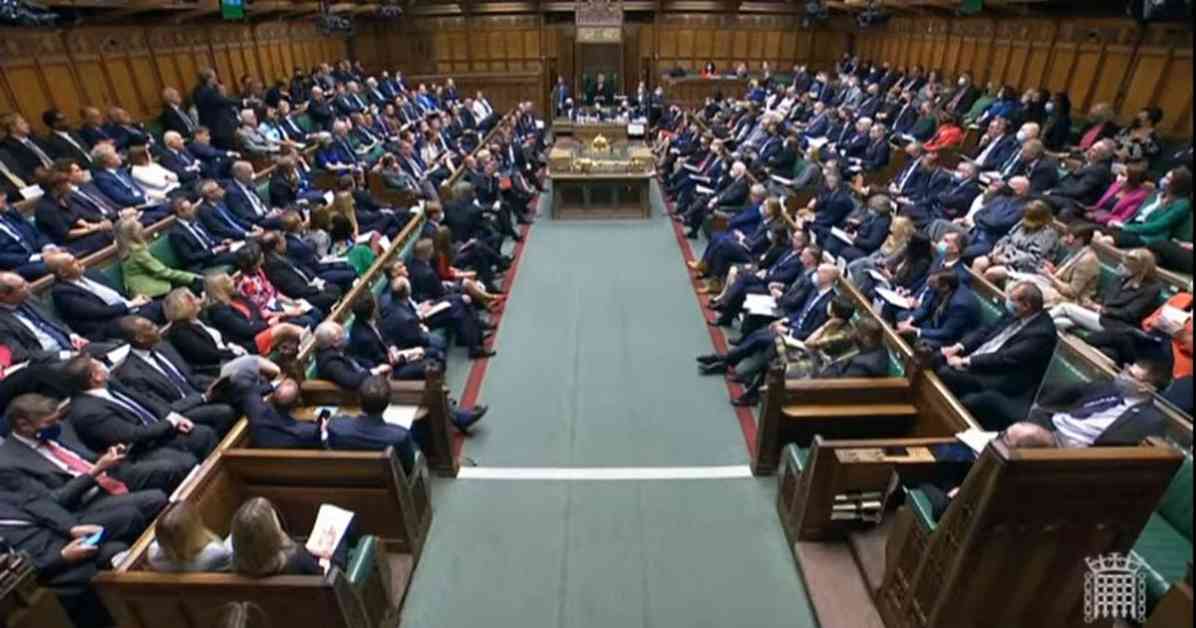MPs have recently voted to cut Winter Fuel Payments for millions of people across the UK, sparking controversy and debate among politicians and the public. In a vote in the House of Commons, a motion to cancel the cuts to Winter Fuel Payments was defeated by a majority of 120, with a number of Labour MPs either voting against or abstaining on the proposal. The vote resulted in 348 MPs voting against the Tory motion to block the cuts, while 228 MPs voted in favor of it. The announcement of the vote results was met with shouts of “shame” in the House of Commons chamber, reflecting the strong emotions surrounding the issue.
Northern Ireland MPs unanimously voted in favor of the motion to cancel the Winter Fuel Payment cuts, highlighting the unity of their stance on the matter. The debate on the motion saw Work and Pensions Secretary Liz Kendall accusing the Conservatives of “faux outrage” over the Winter Fuel Payment cuts. She emphasized the importance of ensuring pensioners receive the financial support they are entitled to, urging all honorable members to work together to address the concerns of the most vulnerable in society.
During the debate, DUP leader Gavin Robinson intervened in Liz Kendall’s speech, expressing his opposition to the measure and labeling it a “measure of shame.” His comments underscored the deep divide and strong emotions surrounding the issue of Winter Fuel Payment cuts. The division list revealed that some Labour MPs supported the Conservative motion, while others did not have their votes recorded, prompting further discussion and analysis of their positions on the matter.
Labour MP Rachael Maskell raised concerns about the impact of the Winter Fuel Payment cuts on pensioners living in poverty, noting that many are already struggling to afford basic necessities like heating. She emphasized the need to protect vulnerable individuals in society and called for greater support for those facing financial hardship. Father of the House Sir Edward Leigh also criticized the government’s decision to cut Winter Fuel Payments, describing it as a “punishment beating” against pensioners.
Communities Minister DUP MLA Gordon Lyons voiced his opposition to the UK Government’s decision to cut Winter Fuel Payments, highlighting the negative consequences it would have on older people in Northern Ireland. He warned of increased pressures on public services and the health implications of the cuts, emphasizing the detrimental impact on those just above the threshold for receiving benefits. Lyons called for a reconsideration of the decision and expressed his concerns to the UK government about the potential harm it could cause.
The move by the UK Government to cut Winter Fuel Payments has sparked widespread debate and criticism, with politicians and community leaders expressing their opposition to the decision. The impact of the cuts on vulnerable individuals and the potential strain on public services have raised concerns about the long-term consequences of the policy. As discussions continue and the fallout from the vote unfolds, it remains to be seen how the issue of Winter Fuel Payments will be addressed in the future.
Impact on Vulnerable Individuals
The decision to cut Winter Fuel Payments has raised significant concerns about the impact on vulnerable individuals, particularly pensioners living on fixed incomes. The reduction in financial support for heating costs could lead to difficulties in staying warm during the winter months, posing risks to the health and well-being of those affected. As the cost of living continues to rise, the prospect of struggling to afford essential utilities like heating becomes a harsh reality for many elderly individuals.
Public Response and Advocacy
The public response to the Winter Fuel Payment cuts has been mixed, with some expressing outrage at the decision and others highlighting the need for fiscal responsibility. Advocacy groups and charities have voiced their opposition to the cuts, emphasizing the importance of supporting vulnerable individuals in society. Calls for a reevaluation of the policy and a more compassionate approach to addressing the needs of pensioners have resonated with many members of the public, who are concerned about the welfare of older citizens.
Future Policy Considerations
As discussions continue around the issue of Winter Fuel Payments, there is a growing recognition of the need for a comprehensive and sustainable approach to supporting vulnerable individuals. Policymakers are faced with the challenge of balancing fiscal responsibility with the well-being of those most in need, highlighting the importance of a nuanced and compassionate approach to social welfare. The debate surrounding Winter Fuel Payments serves as a reminder of the delicate balance between financial prudence and social support, prompting further reflection on the priorities of government policies.




